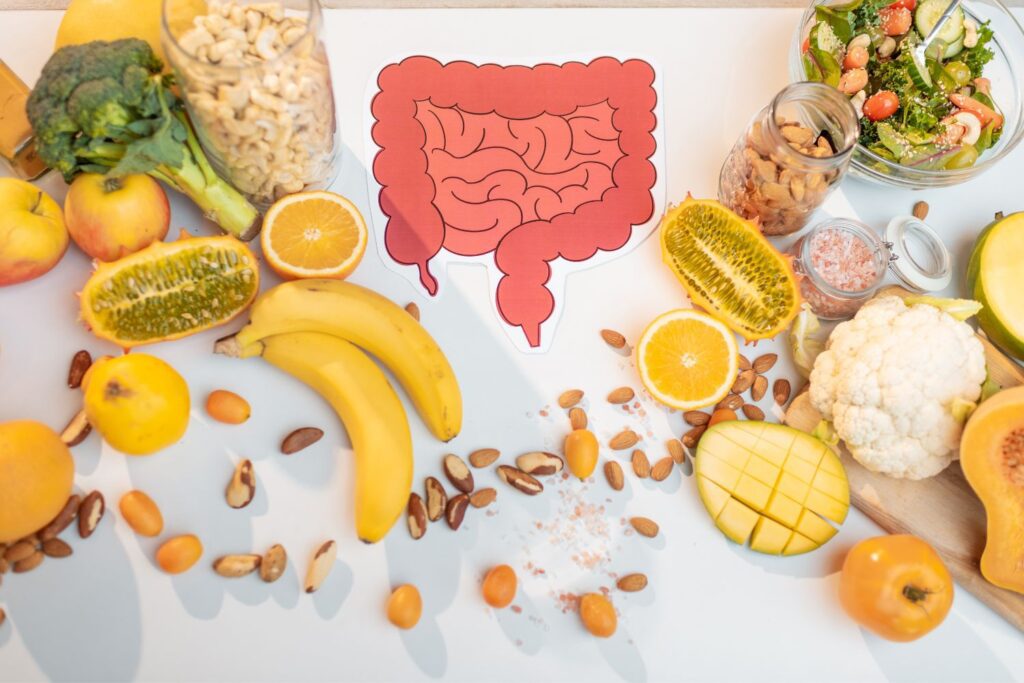Irritable Bowel Syndrome (more commonly known as IBS) is the most common disorder of the human digestive tract and a medical condition that is still misunderstood by many people. Currently, approximately 20% of the Australian population experience IBS symptoms, with women being three times more likely to experience IBS. In this article, we’ll highlight what IBS is, its symptoms, how it is diagnosed, and the treatment and management options.
TABLE OF CONTENTS
So, What is IBS?
IBS is known as a functional gastrointestinal disorder, a disorder related to the gut-brain interaction, meaning problems with how the brain and gut work together. These problems can cause the gut to be more sensitive and change how the bowel muscles contract. This change in sensitivity and how the bowel muscles work leads to the symptoms we see with IBS. With IBS, you have these symptoms without any visible signs of damage or disease in your digestive tract.

Signs & Symptoms of ibs
IBS can affect each individual differently, with symptom severity varying from person to person. Some people may only experience a few symptoms or all of them. Common symptoms include:
- Abdominal Pain
- Bloating or cramping in the abdominal region
- Diarrhoea
- Constipation
- The feeling you haven’t finished a bowel movement
- Whitish mucous in your stool
People with IBS may also experience symptoms unrelated to the intestine, such as:
- Migraine headaches
- Sleep disturbances
- Anxiety or depression
- Fibromyalgia (widespread muscle pain and tenderness)
- Chronic Pelvic Pain

What Causes IBS?
Doctors aren’t exactly sure what causes IBS; they think a combination of factors leads to a change in how the brain and gut interact. There are many different factors that cause IBS, including;
- Food intolerances or sensitivities
- Stressful or difficult early life events
- Certain mental disorders
- Bacterial infections of the digestive tract
- Small intestinal bacterial overgrowth- an increase or change to the bacteria in the small intestine
IBS Treatment Options
As the exact cause of IBS is unknown, there is no universally accepted treatment protocol. Current evidence indicates that a multifaceted approach is the most effective management method. The most common recommendation is identifying and avoiding triggers, but other treatment options include:
Eating, Diet and Nutrition
Your symptoms may respond to different nutrition and dietary modifications, including;
- Increasing fibre intake
- Moderating common gas-producing foods
- Avoiding gluten- some people with IBS experience more symptoms when eating gluten, even if they do not have celiac disease
- Low FODMAP diet- this involves reducing or avoiding certain foods that contain carbohydrates that are hard to digest
Working with a dietitian is always recommended to ensure you still get all the nutrients you need, no matter your diet.

Medical Interventions
Your symptoms may also require medication, such as:
- Medication to control symptoms of IBS, such as anti-diarrhoea medication, laxatives or anti-spasmodic medication to relieve cramping.
- Tricyclic antidepressants can be effective in treating pain, bloating, and bowel frequency in IBS, but this does not mean that IBS is caused by depression or anxiety.
Mental Health and Allied Therapies
- Psychological therapies: Cognitive behavioural therapy and gut-directed hypnotherapy. A trained psychologist should guide these treatments.
- Behavioural and pelvic floor therapies: Often, symptoms of IBS can be caused by the inability to defecate effectively; trained pelvic floor therapists, like a pelvic floor physiotherapist or osteopath, can treat this effectively
Multidisciplinary Care Team
People with gastrointestinal disorders like IBS have been found to have greater symptom relief and improved well-being when treatment and management involve a multidisciplinary care team. A care team may include:
- Dietitians
- Hypnotherapists
- Psychologists
- Pelvic Floor Allied Health Clinicians
- Nurse Specialists
This care team will aim to improve the patient’s quality of life by addressing all aspects of irritable bowel syndrome.
Want to learn more about IBS?
- Monash University research showed IBS symptoms improved in 3 of 4 people who followed a low FODMAP diet. Learn more about the FODMAP diet here: https://www.monashfodmap.com/
- The Gut Foundation is a gastroenterologist-led group that aims to promote greater public awareness and GP education on gut issues: www.gutfoundation.com.au
- Dietitians Australia is the peak body for dietetic professionals, with information, resources and advice: www.dietitiansaustralia.org.au
- This podcast discusses the differences between chronic pelvic pain conditions, such as irritable bowel syndrome or endometriosis: www.gutfoundation.com.au/podcasts-free-resources/
Kristen Varnis
Dietitian, Sports Dietitian & Nutritionist
B.App.Sc. (Health Sc), B.Nutr & Diet, A.P.D.

Want to learn more? Our practitioners are here to help; click here to make a booking.

